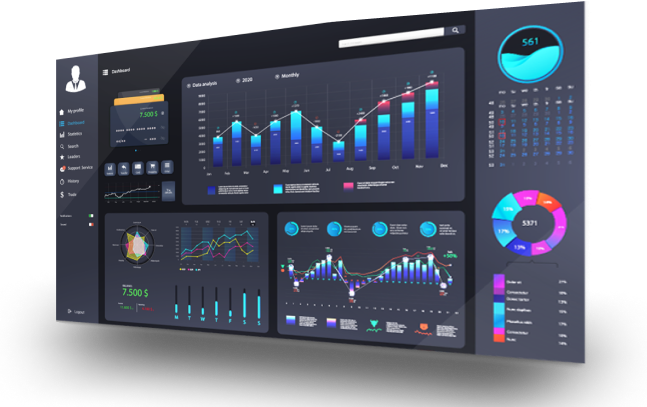 Just when you thought you had your social media game plan (you do have one, right?) all nice and set, Buzz happens. It’s like the NFL suddenly announces a new team halfway through your fantasy league season.
Just when you thought you had your social media game plan (you do have one, right?) all nice and set, Buzz happens. It’s like the NFL suddenly announces a new team halfway through your fantasy league season.
What is Buzz? In brief, it is a Google-developed social web platform that is tightly integrated with other Google products (such as Reader and Picassa, but primarily Gmail). It’s main features:
- Integrated into your Gmail inbox. Appears in a folder there, and posts with which you interact show up as inbox messages.
- Unlimited length posts and comments.
- Comments stay in threads with original posts.
- Ability to share either publicly or privately.
- Easily incorporates media (photos and videos) right into your posts.
- Can auto-incorporate feeds from Twitter, YouTube, Reader, Picasa (several others, more to come)
- Uses intelligent algorithms to bring what you’re most likely to be interested in to the top of your feed.
- Posts from friends update in real time. No refreshing needed.
If you are a business owner trying to promote your business on the web, you’ve probably by now incorporated at least some social media outlets into your mix. Maybe you’ve got a Twitter account and a Facebook Fan Page. Now Google, the 50,000 ton elephant drops Buzz, it’s 10,000 pound gorilla, into your social media jungle. Do you need to engage?
There are a number of reasons why you shouldn’t: Buzz is not the most intuitive of networks (although far easier to pick up than Google Wave). It moves really, really fast, and thus can be a time suck. At the present, it’s user base is minuscule compared to Twitter or Facebook, and limited to Gmail users (or those with at least Google Profiles, on the mobile version).
But why should you have a presence on Buzz? I think there are at least several good reasons:
- It is not only “the next big thing,” it is the Next Big Thing Backed By Google. I’m aware that Google has allowed a few of its past experiments to die on the vine (Hello Orkut? Paging Sidewiki), but every indication I’ve seen is that Google is committed to Buzz. The “Buzz Team” at Google (Follow on Buzz: http://www.google.com/profiles/googlebuzz#buzz) is active on Buzz, interacting with user complaints and suggestions, and providing tweaks and improvements almost daily.
- Because it’s Google-backed, I’ve got to believe that your posts on Buzz will eventually rank high in Google search, and also provide Google juice back through your links.
- It’s early-adopter user base, though still small compared to Twitter or Facebook, is enthusiastic and growing rapidly. People who stay with Buzz tend to be people who really like it, and who use it actively. They will quickly follow anyone who seems to be adding value to the conversations there.
- Buzz facilitates a much higher level of engagement with followers than is possible on Twitter. Comments stay in a thread with the original post, which encourages back and forth conversation. Once someone comments, future comments put the post back in their inbox, encouraging ongoing engagement.
Some tips, should you decide to engage on Buzz. As with any social web medium, the following should not be taken as hard and fast rules. Rather they are some suggested guidelines based on my own experience and observation as an active user from Day One of Buzz’s existence.
- Buzzers value and expect engagement/conversation. There may come a time when broadcasting your posts may be more accepted, but right now the people who are most active on Buzz are there because they see it as primarily a conversational medium. They will follow anyone who is seen as making valuable contributions to the conversations.
- In keeping with #1, I make it my practice to immediately comment on some post of anyone I decide to follow. I find some post in their stream, any post I think I can engage, and leave a constructive comment. Because of the instant inbox feature of Buzz, they are likely to have seen your comment (and name) before they see the notification of your follow. This may make them more likely to follow you back.
- Sign up with a personal, not a business-named account. Buzzers are very sensitive to even the appearance of spam. They realize that Buzz is virgin territory, and they want to protect their virtuous lady from the ravages that have happened on Twitter and Facebook. Unless you already have a very well-recognized corporate name on the social web (e.g., Mashable, ReadWriteWeb, TechCrunch), Buzzers will treat your non-human-named account with suspicion. (TIP: the name that will show on Buzz is the name you put in the Google Profile associated with the Gmail account you use to access Buzz.)
- Then what about branding? At least for now, your branding value on Buzz will come in through the back door, as it were. As you are seen as a “real” person who interacts well with other’s posts, followers will pay more attention to your own posts (which will come from your corporate blogs, articles, etc.), and also take note of your company’s brand in your Profile. This is the way it should be on the social web, however. Company recognition and credibility are the rewards of real social engagement.
- Build a detailed and complete Google Profile page. Log in to your Google Profile page with the Gmail account with which you are accessing Buzz, and fill it out as thoroughly as you can. This is your chance to do the branding for your company. The Profile is where many Buzzers look to decide whether they are going to follow you or not; it is your credibility establisher. Be sure to link all your company’s web presence locations. For added credibility, have Google tag your Profile as a “verified name.”
- Turn off the Twitter and Friendfeed connections into Buzz if you’re a prolific poster on either of those services. Buzz followers tend to see anyone feeding a lot of tweets into Buzz as a noise generator. Buzzers seem to be more sensitive to noise than people on Twitter or Facebook. Also, try to keep a balance between “shares” (stuff you find around the web that you share into Buzz, usually through Reader) and original posts in Buzz. When people look at your Profile, they will scan the last five or six buzzes. If they are all tweets or shares, they will be unlikely to follow, seeing you as a broadcaster, not an engager.








